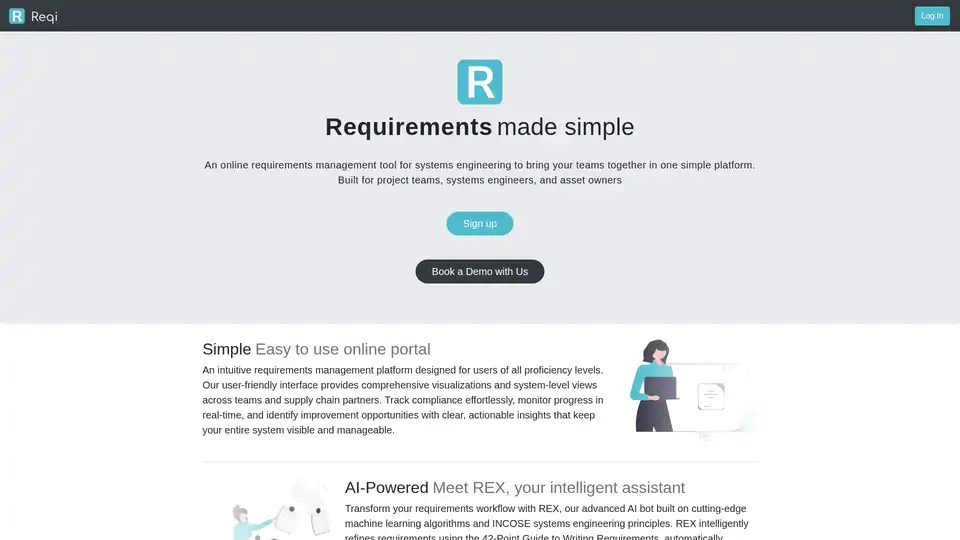
Reqi
Overview of Reqi
What is Reqi?
Reqi is a comprehensive online requirements management tool designed specifically for systems engineering projects. It serves as a centralized platform that brings together project teams, systems engineers, and asset owners to streamline the entire requirements lifecycle. By leveraging systems thinking principles, Reqi ensures that requirements are captured, analyzed, traced, and managed efficiently across the supply chain. At its core, Reqi integrates AI capabilities through its intelligent assistant, REX, which automates and enhances various aspects of requirements handling, making complex projects more predictable and less prone to errors.
This tool stands out in the field of systems engineering by providing an end-to-end solution that goes beyond basic documentation. It's built to handle the intricacies of modern projects, from initial conception to final delivery, helping users avoid common pitfalls like misalignments, overlooked risks, and compliance issues. Whether you're managing aerospace systems, infrastructure developments, or any large-scale engineering endeavor, Reqi offers the visibility and control needed to deliver on time and within scope.
How Does Reqi Work?
Reqi operates as a cloud-based portal, accessible via web browsers, allowing users to upload, import, or create requirements directly within the platform. The workflow begins with capturing requirements from various sources, such as PDFs, briefs, specifications, or reports. Here's a breakdown of its key operational mechanics:
Requirement Capture and Import: Users can perform bulk imports of contract requirements or extract them automatically from documents using REX's AI algorithms. This feature saves hours of manual data entry and ensures nothing is missed.
AI-Powered Refinement with REX: REX, the AI bot, is powered by machine learning and adheres to INCOSE (International Council on Systems Engineering) principles, including the 42-Point Guide to Writing Requirements. It refines inputs by suggesting improvements, identifying ambiguities, conflicts, or missing elements, and generating acceptance criteria automatically. For instance, REX can derive child requirements, allocate them to systems or owners, and flag assumptions, constraints, and dependencies.
Analysis and Allocation: Once captured, requirements are analyzed for risks, assumptions, and responsibilities. The platform assigns ownership across teams and supply chains, using progressive reviews to build a robust foundation.
Traceability and Visualization: Reqi excels in providing full traceability throughout the project lifecycle. Users can visualize system architectures, interdependencies, and progress with interactive diagrams and dashboards. This bidirectional traceability links requirements up and down the chain, ensuring changes are propagated effectively.
Collaboration and Reporting: A shared data environment fosters real-time collaboration. Teams can comment, track changes, and monitor compliance via customizable dashboards. Reporting tools allow filtering and packaging of data for stakeholder updates, highlighting progress, risks, and non-compliance areas.
The platform's systems-led framework ensures that every feature aligns with engineering best practices, reducing reactive firefighting and promoting proactive management.
Key Features of Reqi
Reqi packs a suite of features tailored for systems engineers and project managers. Below are the standout ones:
Intuitive User Interface
The platform's design prioritizes simplicity, making it accessible for users of all skill levels. Comprehensive visualizations offer system-level views, real-time progress tracking, and actionable insights. No steep learning curve—teams can onboard quickly and start collaborating.
REX: The AI Assistant
- Automated Generation: Extracts and defines requirements from any document type.
- Refinement Tools: Analyzes for completeness, suggests edits, and ensures clarity.
- Risk Identification: Uses AI-driven assessments to uncover hidden hazards and recommend mitigations.
- Dependency Mapping: Automatically detects and visualizes connections between requirements, systems, and stakeholders.
Risk and Safety Management
Reqi includes tools for identifying hazards, managing safety risks, and implementing mitigations. It tracks assumptions, constraints, and dependencies progressively, enabling early risk detection that prevents costly delays.
Supply Chain Integration
Bulk contract imports and visualization tools provide oversight of compliance across partners. Analyze relationship structures to understand interconnections and make informed adjustments.
Customizable and Secure
Out-of-the-box functionality meets most needs, but enterprise versions allow bespoke configurations. Security is paramount, with continuous threat monitoring, compliance features, and cloud-based reliability from top providers.
Reporting and Dashboards
Custom filters and visualizations help monitor user progress, allocate requirements, and package deliverables. Gain insights into the entire system to spot improvement opportunities.
How to Use Reqi?
Getting started with Reqi is straightforward:
- Sign Up or Book a Demo: Create an account on reqi.io or schedule a personalized demo to explore features.
- Import or Create Requirements: Upload documents or input new ones; let REX handle extraction and initial refinement.
- Collaborate and Allocate: Invite team members, assign responsibilities, and visualize connections.
- Analyze and Track: Use AI tools for risk assessment and traceability; monitor via dashboards.
- Review and Report: Generate reports, refine as needed, and ensure compliance throughout the lifecycle.
For optimal results, integrate it early in projects to set clear objectives. It's particularly effective for distributed teams, as the shared environment aligns everyone from day one.
Why Choose Reqi?
In a landscape where project delays often stem from poor requirements management, Reqi differentiates itself through AI integration and systems engineering focus. Traditional tools might handle basic tracking, but Reqi's REX automates tedious tasks, freeing engineers for high-value work. Users report reduced ambiguities, faster iterations, and fewer surprises in delivery—key for industries like defense, automotive, and energy.
Its commitment to security and compliance makes it ideal for regulated sectors. Plus, full support in enterprise plans ensures smooth adoption. Compared to manual processes or generic PM software, Reqi delivers measurable efficiencies: proactive risk mitigation, enhanced traceability, and unified collaboration that cuts costs and boosts outcomes.
Real-world value is evident in its ability to transform reactive management into a strategic asset. For example, supply chain visualization helps identify compliance gaps early, while REX's insights prevent requirement creep. If you're tired of spreadsheets and disjointed tools, Reqi offers a modern, AI-enhanced alternative that scales with your projects.
Who is Reqi For?
Reqi targets professionals in systems engineering and project management who deal with complex, interdependent requirements:
- Systems Engineers: Needing traceability and visualization for architecture design.
- Project Teams: In industries like aerospace, manufacturing, or infrastructure, requiring collaboration across supply chains.
- Asset Owners and Compliance Officers: Focused on risk management and regulatory adherence.
- Enterprise Users: Seeking customizable, secure solutions with AI automation.
It's not just for tech experts—its intuitive design suits beginners while powering advanced workflows for pros. Small teams can start free with REX trials, scaling to enterprise for full features.
Practical Value and Use Cases
Reqi's real strength lies in its application to everyday challenges. Consider a defense contractor managing a multi-vendor project: Reqi imports contract specs, REX refines them for clarity, and traceability ensures changes ripple correctly—averting million-dollar overruns.
In infrastructure, it tracks safety risks progressively, from design to handover, with dashboards providing at-a-glance compliance status. For software-heavy systems, AI extraction from reports accelerates development cycles.
Users praise its ease in fostering alignment: "The platform simplifies collaboration and identifies risks we missed manually," notes one systems engineer. By reducing manual hassles, it enhances productivity, minimizes errors, and delivers predictable results—ultimately providing a high return on investment through faster project completion.
To maximize value, pair it with INCOSE training for deeper insights. Explore reqi.io today to try REX free and see how it revolutionizes your requirements process.
In summary, Reqi isn't just a tool; it's a strategic partner for systems engineering excellence, blending AI innovation with proven principles to navigate complexity with confidence.
Best Alternative Tools to "Reqi"
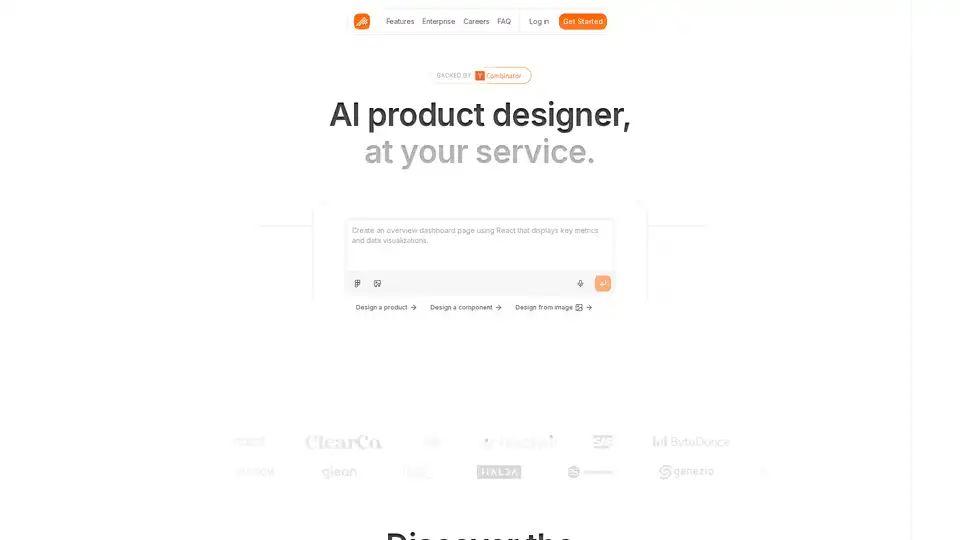
Polymet is an AI product designer that helps teams create production-ready designs and code. Design products/components, import from Figma, integrate with Github, and collaborate with your team.
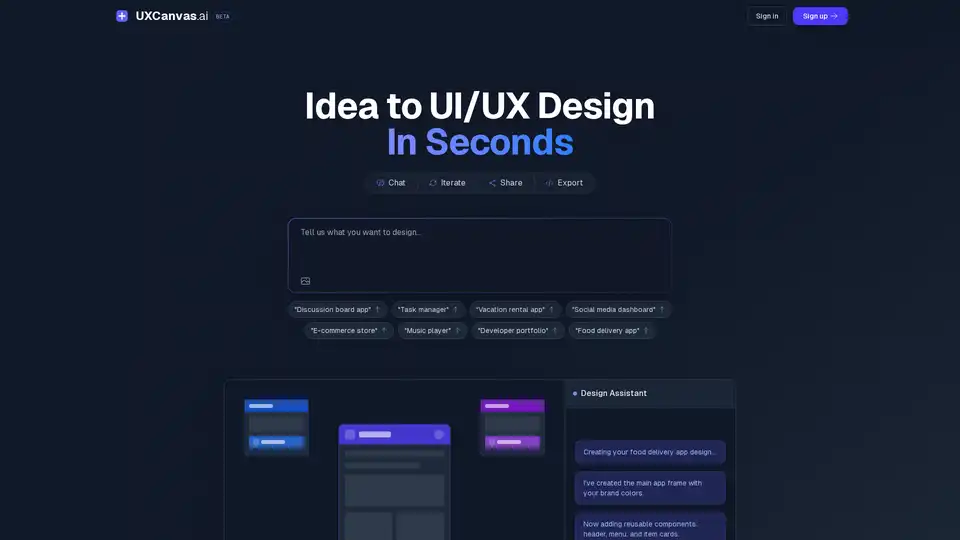
UXCanvas.ai is an AI-powered UI/UX design tool that transforms ideas into stunning designs in seconds. Design through conversation, iterate in real-time, and export to Figma or code.
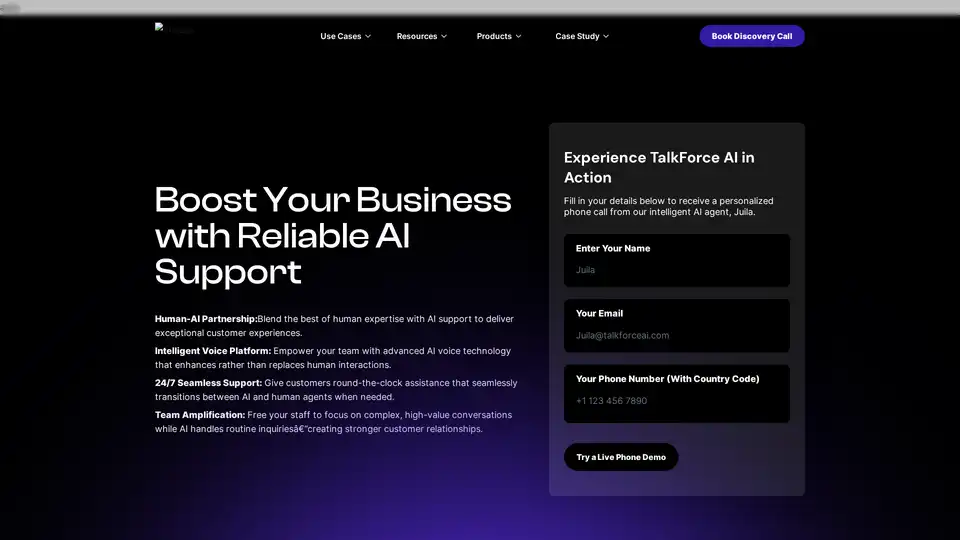
TalkForce AI revolutionizes customer service with AI-powered virtual agents, offering 24/7 support, streamlined operations, and enhanced customer satisfaction. Automate routine inquiries and free up your team.
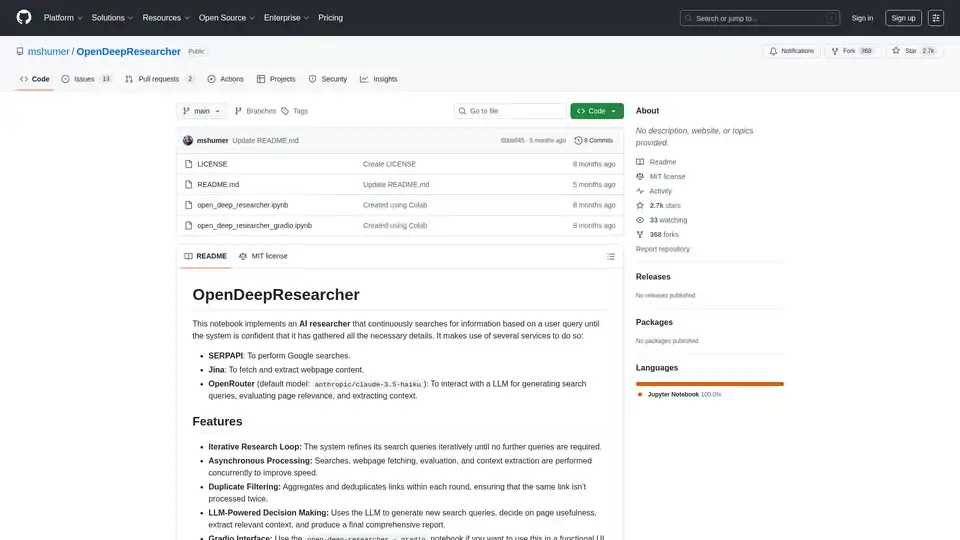
OpenDeepResearcher is an AI-powered tool that iteratively searches for information based on a user query using SERPAPI, Jina, and OpenRouter, delivering a comprehensive final report.
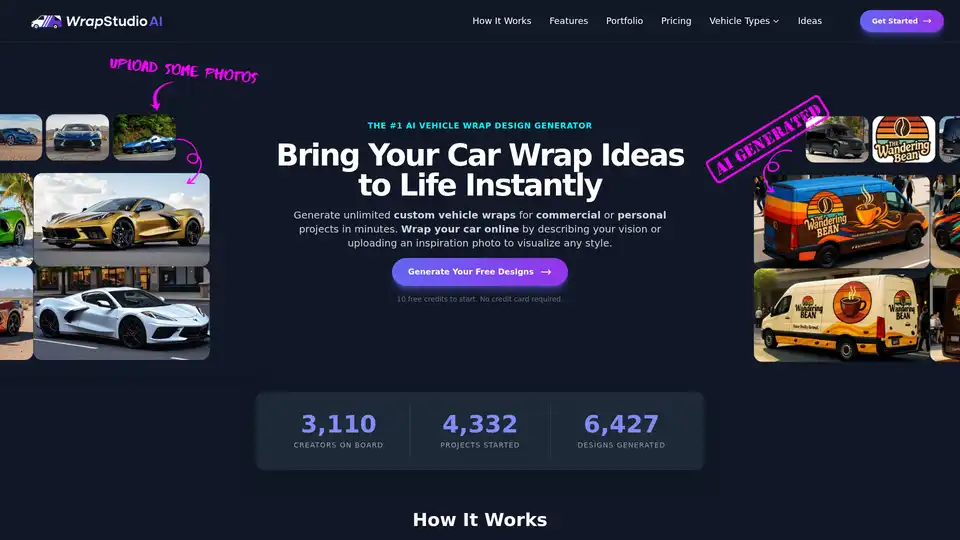
Generate professional custom car wraps in minutes with AI technology. Create commercial vehicle wraps or unique personal styles with 3D mockups and advanced refinement tools.
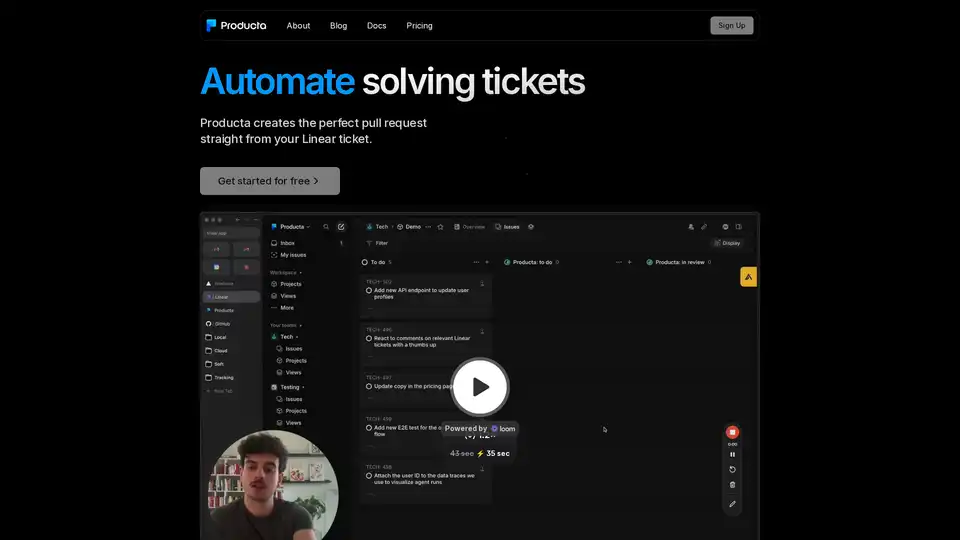
Producta automates technical ticket resolution using AI, generating precise pull requests from Linear tickets to relieve team backlogs and enhance developer productivity.
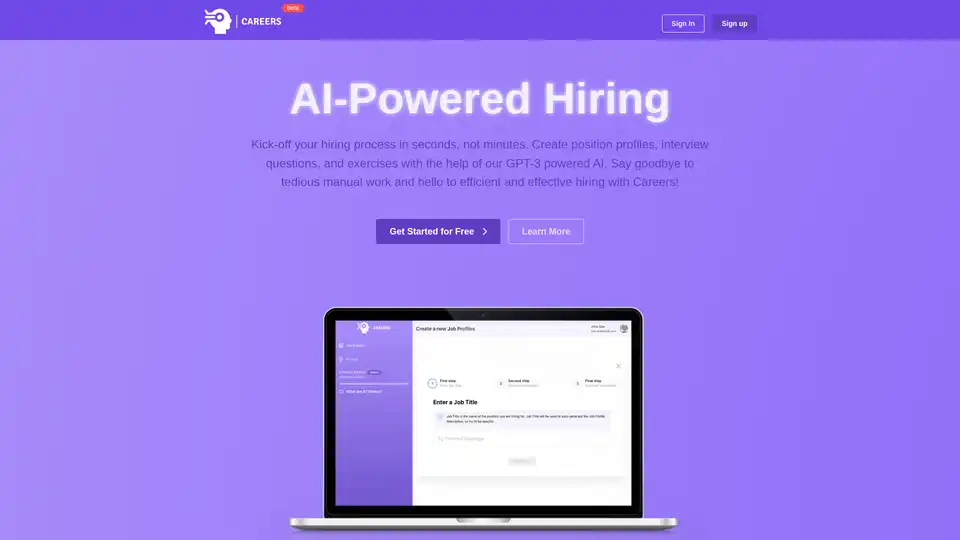
Streamline your hiring process with Careers's AI-assistant. Generate position profiles, interview questions, and candidate challenges with ease.
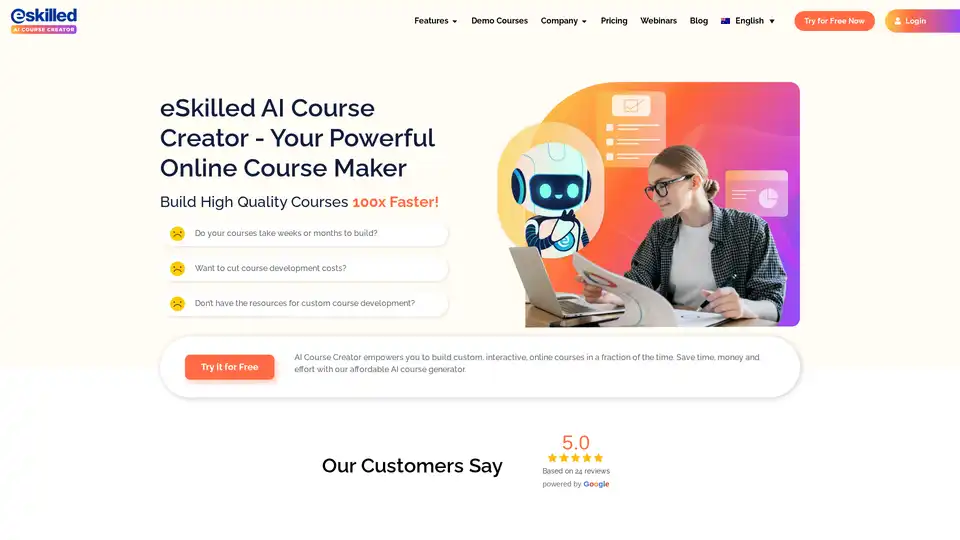
eSkilled AI Course Creator: Build custom, interactive online courses 100x faster! Save time & money with AI. Ideal for employee training, education & more.
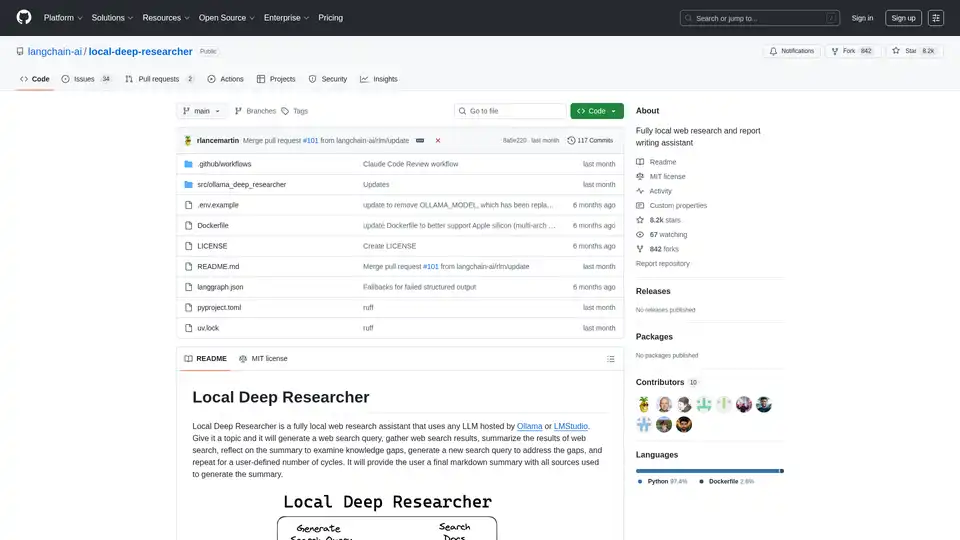
Local Deep Researcher is a fully local web research assistant that uses LLMs via Ollama or LMStudio to generate search queries, gather results, summarize findings, and create comprehensive research reports with proper citations.
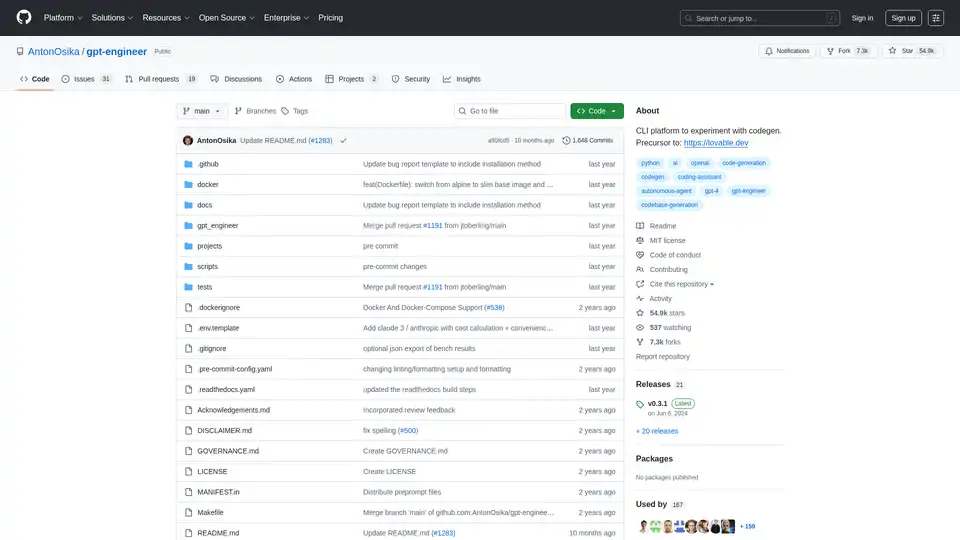
GPT-Engineer is an open-source CLI platform for AI-powered code generation experiments using GPT-4 and other models to automate software development from natural language prompts.
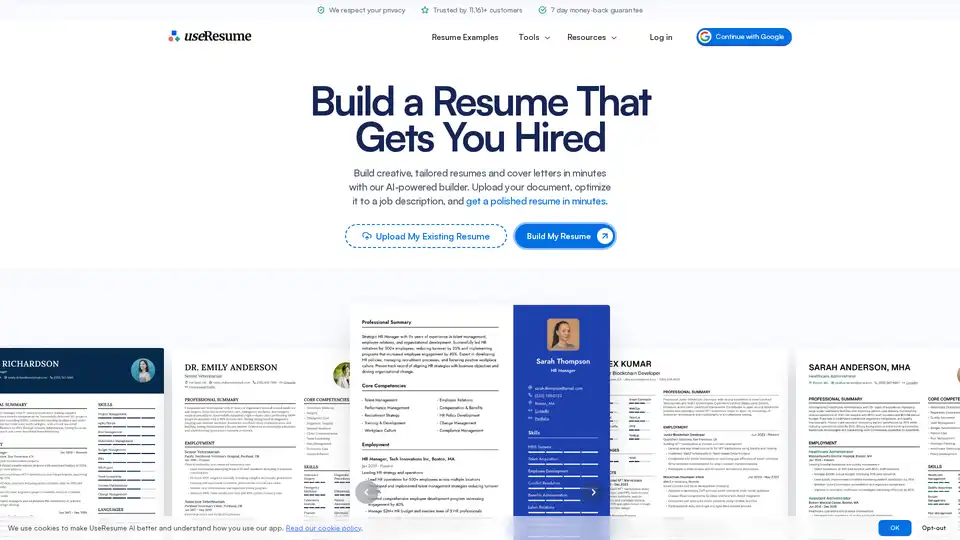
Build a creative resume and cover letter for your dream job. Transform your job applications with AI-powered document optimization and beautiful templates.
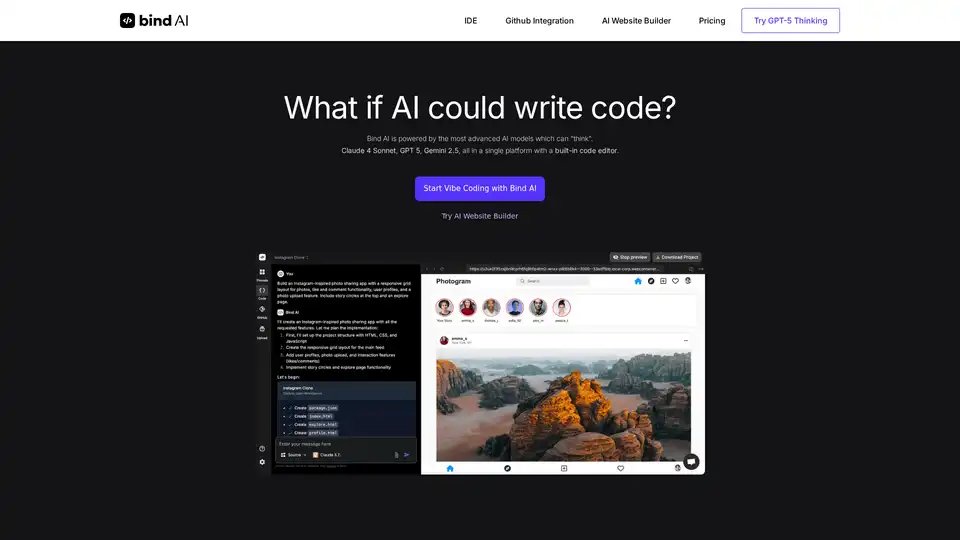
Bind AI IDE is a powerful code editor and AI code generator that helps developers create full-stack web applications instantly using advanced AI models like Claude 4 Sonnet, Gemini 2.5 Pro, and ChatGPT 4.1.
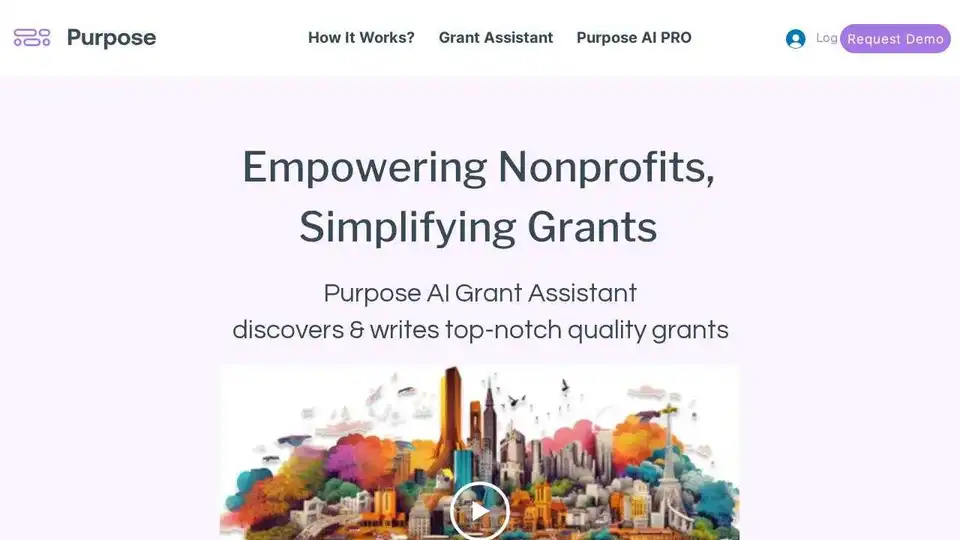
Purpose AI Grant Assistant uses AI to simplify grant writing for nonprofits. Discover matching grants, automate data entry, and generate AI-powered grant proposals ready for your review.
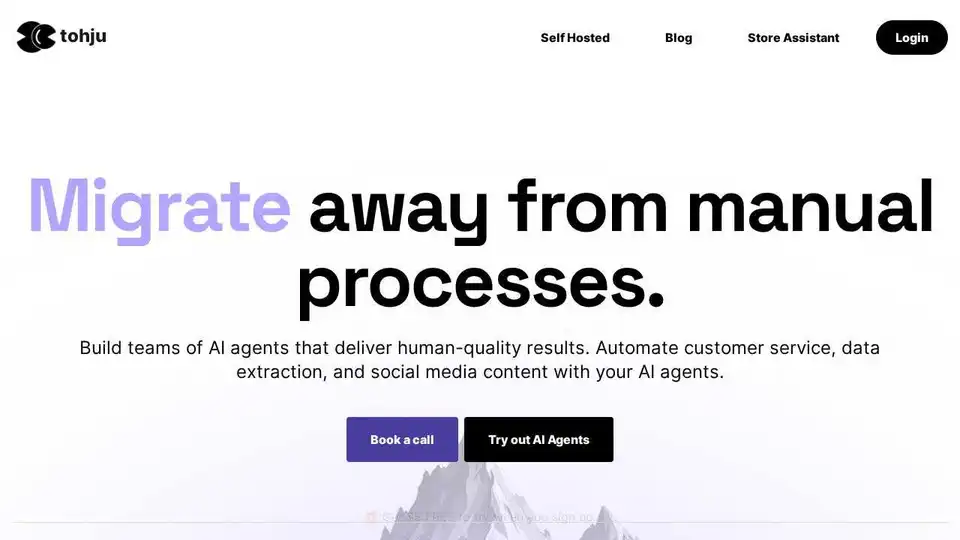
Tohju is an AI automation platform for building AI agents to automate tasks like customer service, data extraction, and social media content creation.
